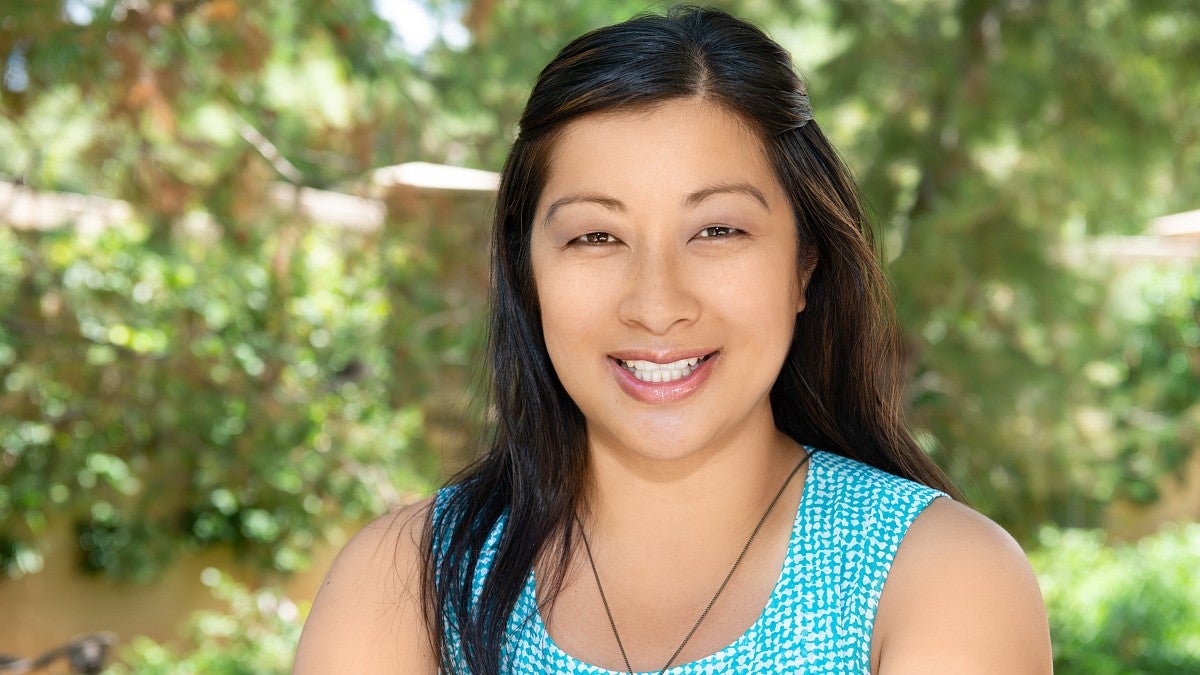
Oct. 23, 2025 - 9:00am
Name: Lily Vuong
Job: Associate Professor of Religious Studies
Hometown: Toronto, Canada (born in Vietnam)
Hobbies: Yoga, volleyball, swimming, nature walks, puzzles and playing board games
Research Focus: Early Christianity and Judaism, Apocryphal literature, Representations of Women and Gender in the Ancient World, and Identity Formation in Late Antiquity
—Lily Vuong, Associate Professor of Religious Studies
Lily Vuong joined the University of Oregon’s Religious Studies department in fall 2024 with a deep commitment to interdisciplinary scholarship and a passion for early Christian and Jewish texts. Her work examines Christian apocryphal literature — a vast collection of popular writings that feature tales about Jesus, his family, and immediate followers — through feminist, literary, and historical lenses to explore gender and identity in the Greco-Roman world.
As the newest faculty member in the Religious Studies department, Vuong took time to answer some questions so those in CAS and beyond can get to know her better.
What was appealing to you about taking a job with the University of Oregon and the Religious Studies department?
UO has an excellent Religious Studies department with world-class scholars. I found the department’s interdisciplinary approach to religion especially appealing, and the fact that many faculty members hold affiliations or appointments in other departments and programs creates opportunities for collaboration and rich interdisciplinary work.
I was also drawn to the department’s strong focus on undergraduate teaching and the variety of class styles offered in the program. There are large introductory courses designed to get students interested and excited about the field, and small seminar style classes where students and I can do a deep dive into a specific topic.
What are you researching/working on right now?
Currently, I’m working on a book about the reception history of the Acts of Thecla, a second century apocryphal text on a young woman who converts to Christianity. My study focuses on her impact in later writing and influence on art.
I am also co-editing three volumes: a textbook on the New Testament’s social and historical context (Fortress Press); a collected volume on Jesus’ birth and childhood in Antiquity and the Middle Ages (Peeters Press); and a multivolume handbook on apocryphal texts (Routledge Press).
Previously, I published two books on the Protevangelium of James, a second-century CE Greek text that features the birth and early life of the Virgin Mary as well as other well-known details surrounding the birth of her son, Jesus. These books are “Gender and Purity in the Protevangelium of James” (Mohr Siebeck Press, 2013) and “The Protevangelium of James” (Cascade Press, 2019). I also edited two volumes on religious competition: Religious Competition in the Third Century CE (Vandenhoeck & Ruprecht Press, 2013) and Religious Competition in the Greco-Roman World (SBL Press, 2016).
Why should students consider taking Religious Studies classes?
Religious Studies is an important and relevant discipline that inherently engages history to help understand the big questions in life: What happens after we die? What is a good life? Why do bad things happen to good people?
Religious Studies helps students better understand the world around them and is key to making sense of broader human dynamics and experiences. For instance, if we want to study the roots of women’s oppression in a given culture, studying that culture’s religion is critical to understanding its ideological view on women and gender. Religions have helped to define laws and morals as well as popular customs. Religious Studies also teaches students how to interpret and critically engage texts, traditions, practices, rituals, and beliefs across different time periods and cultures.
What classes are you teaching?
I’m scheduled to teach a 400/500 level seminar style class on Jewish and Christian apocalyptic literature where we’ll be focusing on biblical and biblically related writings including Daniel, 1 Enoch, Apocalypse of Peter, Apocalypse of Paul and Revelation. I will also be teaching Jesus and the Gospels.
Be sure to find and connect with Vuong on LinkedIn.
—By Harper Wells, College of Arts and Sciences
